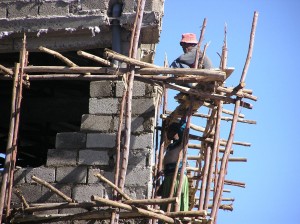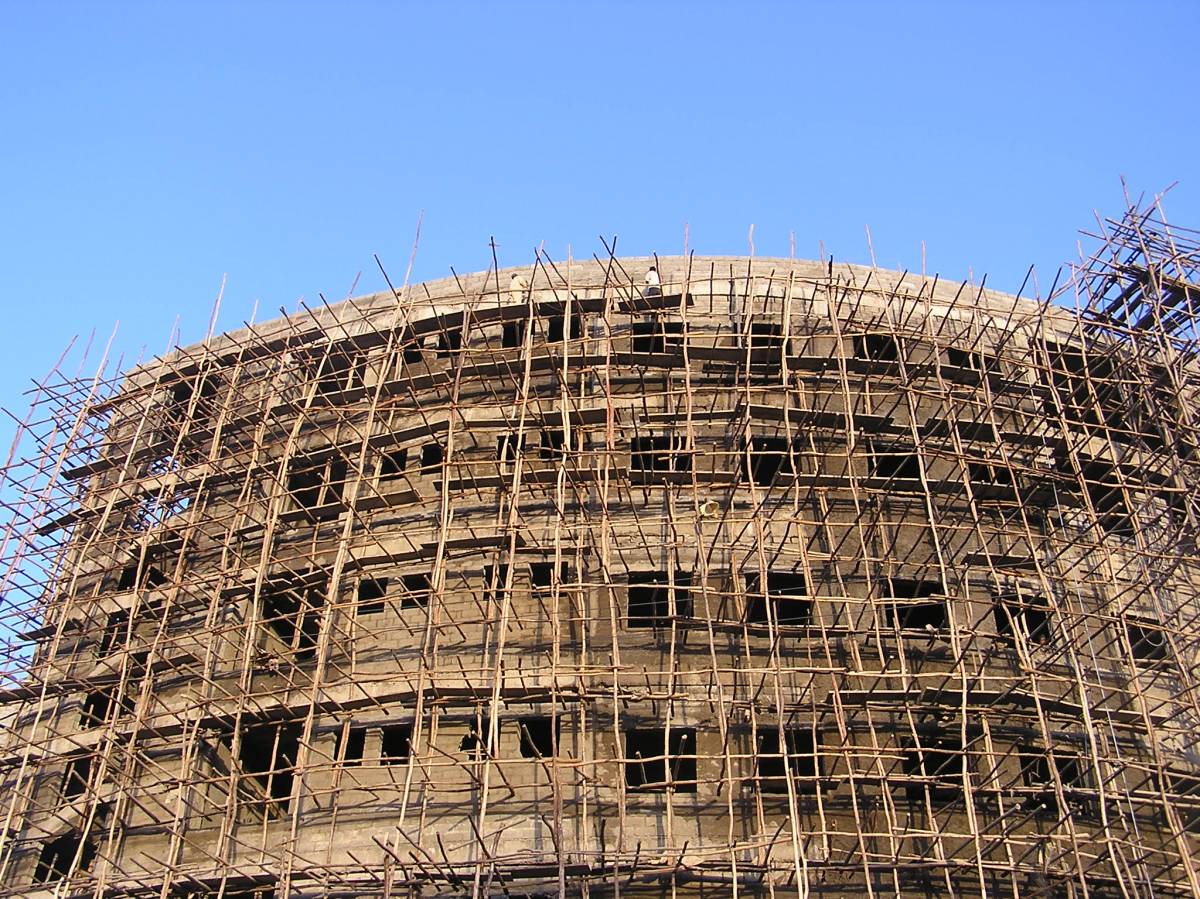By Betre Yacob.
 Abera is a 30 year old young man who works as a day laborer in a building construction company. He came from Estie Woreda, South Gonder Zone, Amhara Region. Daily he transports cement, stone and other raw materials up and down high rise buildings under construction.
Abera is a 30 year old young man who works as a day laborer in a building construction company. He came from Estie Woreda, South Gonder Zone, Amhara Region. Daily he transports cement, stone and other raw materials up and down high rise buildings under construction.
“I have several times suffered from serious workplace accidents,” Abera said while trying to show the big scar found on his right back.
“Once while I was transporting stone to the second floor of building, the old scaffold, which I was walking on, broken down and let me fall down to the ground, where there were stones and pieces of wood …”
All over Ethiopia millions of daily laborers work in big constrictions in an unsafe working environment and without supportive and protective equipment. They don’t have protective caps, gloves, eye coverings, work clothes, shoes, etc. They work on high-rise buildings standing on old and inclined wooden scaffolds and ladders, they even transport heavy construction materials on them. Moreover, the constructions do not have safety nets and restraint and fall arrest systems. As a result, like Tessema, a dozen of the daily laborers get different serious injuries. Many, in fact, lose their lives.
In a recent scaffold collapse accident I witnessed in city of Bahir Dar, the capital of Amhara Region, for instance, 18 young, female daily laborers have died, while many others have serious injury.
Like many other female daily laborers, Aster, who I found in one construction site, was working while dressed in her regular traditional clothing. This cloth is challenging to walk in even on a flat ground.
“Eight months ago,” Astier said, “while I was transporting cement, my dress tackled my leg and I fell down from the first floor of the building to the ground and was seriously injured … If I had been on the fourth floor of the building, I would have died …”
Surprisingly, although Abera and Aster sustained the accidents while they were on duty, they did not receive any compensation from their employers. Even their medical bills were not covered.
“I didn’t know about the right to claim such benefits, this is why I didn’t claim …” Abera said.
The right of labor is declared with detail obligations of employers in the ‘Ethiopian Labor Proclamation No 377- 2003’. The proclamation explains that an employer must take appropriate steps ranging from instructing or notifying employees concerning the hazards of their respective occupations to provide workers with protective tools, clothing and other safety equipment. It also requires employers to pay the full salary of an employee for three months from the date of injury, 75pc for the next three months after that, and 50pc for the next six months.
But unfortunately this legal document, according to the existing working environment and situation of daily laborers, seems to have been just a bookshelf decoration of the Ministry of Social and Labor Affair, justice bodies, and construction companies.
According to the 2009 Audit Report of the International Labour Office, a lack of recognition amongst the judges of inspectors’ rights to take legal proceedings and low level of fines for Labor law contraventions are the reasons for the poor enforcement of the law.
Link: http://ethiopiahot.wordpress.com/2012/03/03/the-ethiopian-daily-laborers-fear-accident/




That is really a risky scaffolding. That was high. Thanks for the post.
Anticearcan bio
doar la site-ul SLA.
website complet cu Pudra libera
Aici ai parte de preturile neinsemnate.
portal complet lenjerie dama.
Profita de tarifele redusela chilotii tanga.
Servicii turnee strainatate Europa pentru echipe de fotbal . Agenti licentiati UEFA
Sali?te
juniori